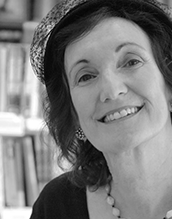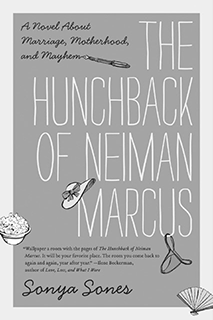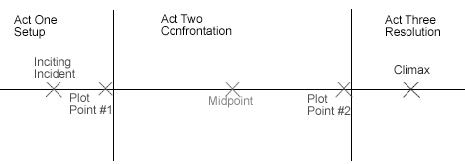ALAN v40n3 - The Author's Connection: I Am Not Terrified of Writing This Article
The Author's Connection: I Am Not Terrified of Writing This Article

I am not terrified of writing this article. My fingers aren’t trembling as they hover over the keys of my smirking laptop. My throat isn’t drier than dust. I don’t feel like I’m heading into a pitch black tunnel. Full of rats. And bats. And bulgy black spiders. All by myself. Without a flashlight. This is going to be easy. A piece of cake . . .
When Melanie Hundley kindly offered me the opportunity to write this piece for The ALAN Review about my new novel in verse, To Be Perfectly Honest (A Novel Based on an Untrue Story) , I leapt at the chance. And when she told me that the article should be 3,000 words long, I thought nothing of it. But that’s because, being a verse novelist, I don’t think in terms of word count. Word count doesn’t even enter my mind. I don’t write every day until I knock out 1,000 words, like so many prolific prose writers do. I just write every day until I’ve finished at least one poem, striving to achieve the maximum emotional impact using the minimum number of words.
The thing is, when I so cavalierly said yes to Melanie, I didn’t realize how much work I was actually committing to. And now that it’s come to my attention that 3,000 words translates roughly into 10 double-spaced pages, I’m not hyperventilating, I’m not biting my nails down to their nubs, and I’m certainly not gorging on gummy worms. I can do this thing . . . right?

I mean, I just did a word count and found out that I’ve already written 250 words. Not including that last sentence, even. Or this one—which brings it up to 282. Why, I’m already almost one tenth of the way there! All I have to do now is come up with 2,718 more scintillating, intelligent, thoughtprovoking, illuminating, brilliant words and I’ll be done.
Oh my God ! What have I gotten myself into?
This is a question I am not unfamiliar with. A few years ago, I found myself standing on the deck of a boat that had just embarked on a whale-watching cruise. Moments after we headed off, I noticed that the water felt choppier than it had looked from the shore. Infinitely choppier. As we chugged out of the harbor, plowing into even more wildly churning water, I could feel myself turning greener, and greener still. But I knew that there could be no turning back—that for the next three hours, I would just have to ride it out. I gazed longingly at the dock, clutched my stomach, and thought to myself, “Oh my God ! What have I gotten myself into?”
And to be perfectly honest, that’s exactly how I felt, two years ago, when I was just beginning to write To Be Perfectly Honest —like I was stuck on a boat that was heading into a storm-tossed sea, and there could be no turning back.
Actually, that’s how I feel every time I start a new novel. And I had owed Simon & Schuster this one for many moons. But whenever I sat down to work on it, I found myself wanting to write about how it felt to be approaching middle age, and to be facing an imminent empty nest, and to be taking care of my sick mother—not exactly subjects that teens would find enthralling.

I fought this dastardly urge for awhile, but eventually I gave in and let myself write my first novel in verse for grownups, The Hunchback of Neiman Marcus . (I say it’s for grownups because if I say “my first adult book,” it sounds too much like porn.) It’s a coming-of- middle -age story about learning to grow old disgracefully. Writing in the voice of an adult was the perfect palette cleanser for me, after having written my first four novels in the voices of teens. Though now I was so late delivering my manuscript to the spectacularly patient people at Simon & Schuster that I was riddled with guilt, and I was determined to complete my new book for them in record time, using whatever means necessary to make that happen. I even considered hiring a ghostwriter. But I’m too terrified of ghosts.
My mother
is Marissa Shawn.
Yes.
That
Marissa Shawn.
The one who starred in all those blockbusters
with George Clooney and Johnny Depp
and Brad Pitt,
the one who’s got
three Golden Globes
and two Oscars displayed on the mantel,
The one who’s more talented,
more beautiful, more just plain awesome
than I will
ever
be.
That’s why I’m always making stuff up—
to try to make myself seem
more fascinating than I actually am.
At least that’s what my shrink says.
Because the problem with being
Marissa Shawn’s daughter
is that no one
is interested in
me
.
And I mean
no
one.
Once people find out
who my mother is,
they all want to be my best friend.
But after that,
I’m never really sure if it’s
me
they like
or just the fact that
she’s
my mother.
Oh, wait.
I
am
sure—
it’s just the fact that she’s my mother.
Usually, I begin my novels by noodling around, writing a handful of poems exploring a certain theme that has risen to the forefront of my consciousness. And after a few weeks or months of this, there’s an “aha!” moment when my character introduces herself to me, and I begin hearing her voice in my head. At this point, if I listen very carefully, she’ll start telling me her story, and then all I have to do is write it down. Which I know sounds kind of hokey and mystical, but that’s how it actually happens.
When I began writing To Be Perfectly Honest , I knew I wanted to explore the theme of dishonesty— the effect that lies have on the people who tell them, and the effect that lies have on the people who are told them. I’ve been the victim of some pretty huge lies in my lifetime, and I hoped that writing this novel would help me come to terms with that.
But I was in a hurry. I didn’t have time to sit around and wait until my character introduced herself to me. And when I began thinking about whom she might be, I realized that Colette, a minor character from my novel One of Those Hideous Books Where the Mother Dies , would be the perfect unreliable narrator for my new story. And since she already existed, I wouldn’t have to spend any valuable time figuring out who she was. Colette hadn’t told any lies in that book (at least not any that I was aware of), but I knew that she’d be the sort of girl who’d have an excellent reason to lie a lot. She explains why with heartwrenching clarity in the poem to the right.
(Melanie, dear, if I include the occasional poem in this article, doesn’t that take up lots of extra space? And doesn’t that mean that I don’t have to write quite so many words? Say yes, Melanie. For the love of God, please say yes!)
Now where was I? Oh, yes. I was about to say that now that I’d chosen Colette as my main character, I didn’t have time to noodle around and wait until she was ready to tell me her story. Which is why I decided to do something I had never done before. I decided to write an outline. Although I had no clue how to do this, and felt, in a word, daunted.
So I did what any other author in my shoes would have done: I Googled “outlining your novel.” This eventually led me to reading about The Hero’s Journey, Joseph Campbell’s twelve-step theory of storytelling that follows the odyssey of the archetype known as The Hero while he achieves wondrous deeds on behalf of his tribe. But trying to hang my outline on Campbell’s twelve steps, with headings like “call to adventure,” “meeting the mentor,” and “crossing the threshold,” felt a tad too complicated. Okay— way too complicated.
So, after a brief detour to watch some YouTube videos of kittens teaching babies how to snuggle puppies, I continued on my quest, and ended up at Syd Field’s site. Field, author of Screenplay and The Screen Writer’s Workbook , has identifi ed a paradigm that most screenplays follow—a simple three-act structure that holds the story together: setup, confrontation, and resolution. And although I was writing a novel, and not a screenplay, I figured I could adapt his paradigm for my purposes.
The Three-Act paradigm

According to Field, these three acts are separated by two plot points. A plot point is an event that pushes the story in a whole new direction, leading into the next act. There’s even a handy little chart: So all I had to do was fi ll in this chart and I’d be good to go. Here is how Act One of my outline looked:
Act One
Setup:
Colette, a self-identified liar, and her little brother Will are being dragged out of town for the summer by their movie star mother to go on location with her to San Luis Obispo, “the armpit of the universe.”
Inciting Incident:
When Colette arrives in this new town, she meets and falls madly in love with Connor, a sexy guy who rides a motorcycle. Suddenly San Luis Obispo doesn’t seem like an armpit. It seems like Paradise.
Plot Point #1:
Colette learns that Connor has cancer.
I won’t show you how I filled out the rest of this chart, or I’d be giving too much away. But you get the idea. And fortunately, I did, too. Working from this simple outline, knowing where this obsessive love story was heading, and knowing the shocking twist that was coming, made my work much, much easier. I still felt as if I was stuck on a boat that was heading into a storm-tossed sea, but at least now I had a good supply of Dramamine with me.
I began writing every day and making a fair amount of progress. On the good days, I felt like a writing goddess. On the bad days, I felt like I was in writing prison, serving a life sentence. I soon found that working at home, as lovely as my home-offi ce was, provided me with far too many temptations—too many episodes of Downton Abbey begging to be watched, too much popcorn crying out to be popped, too many floors clamoring to be scrubbed . . . .
Yes, folks, it’s true. When I hit a snag in my writing, when I simply couldn’t come up with yet another way to describe how Colette’s heart felt when she was gazing into Connor’s amber eyes, I would rather have scrubbed fl oors than just sit there staring at my computer screen for one more agonizing instant. Clearly, if I was to write this book at warp speed, I would have to get out of my freaking house.
And then, the universe presented me with an incredible gift. I went on a bicycle ride to clear my head one afternoon, and discovered a public place that had a comfortable chair, a plug, and a view of the ocean. And for reasons I could not fathom, it was completely deserted. So I tricked out my bicycle with a basket on the front for my computer and another basket on the back for the entire contents of my desk. Then, I pedaled off every morning to spend the day at what I had dubbed “my secret office.” I kept its location a secret because I was afraid that if word got out about this spot, I’d soon be standing in a very long line waiting for my turn to use that one precious plug.

Sones’s “getaway” vehicle when writing got tough
The days at my heavenly secret office rolled on, and just as you might expect, I began getting lots more work done, only pausing now and then to glance up at the sparkling Pacific for delicious gulps of inspiration. Had anyone been there to observe me, they might have thought me a little mad, sitting there cackling to myself over one of Colette’s more clever lies, swooning over Connor’s irresistible charm, or giggling over some wisecrack Colette’s little brother Will had tossed off.

The view from Sones’s “secret office”
I never had a little brother of my own, so creating Will was the next best thing. Being seven years old, he’s lost several of his front teeth, which makes him lisp. So to temper what might have become a cutesy-wootsy affectation, I’ve given him a real foul mouth. When Colette promises to be home soon, he tells her, “You better be. Or your ath will be grath.” And he’s The view from Sones’s “secret office” always asking embarrassing questions. When he notices a fan ogling his movie star mother, he says, “Mommy, why ith that man thtaring at your boobth?” Will provides some much-needed comic relief during some of the heavier parts of the story.
When October came, I was right on schedule to reach page 200 and finish To Be Perfectly Honest by December. But then I made a horrifying discovery—my secret office had free wireless Internet. Nooooooo! Now, whenever I hit a snag in my writing, I could click over to the Huffington Post and read about Siamese quadruplets, or check out photos of celebrities looking hideous in their bikinis. In other words, I was doomed.
But fortunately, a friend told me about Freedom—this ridiculously inexpensive software (a mere $10!) that blocks the Internet from your computer for as many minutes as you ask it to. I usually ask it for 90 minutes, and by the time those 90 minutes are over, I’ve made terrific progress on my manuscript. Seriously. You should buy Freedom, too. It’ll change your life. Or, you could just exercise a modicum of self-control and save yourself the 10 bucks.
(I’ve just taken a break from writing, in order to do a word count. And I see that I’m all the way up to 2,334 words. How did I accomplish this miraculous feat? 90 minutes of Freedom, baby!)
But this is no time to celebrate— I’ve got 666 more words to go before I sleep.
So, as I was about to tell you, by November I was working seven days a week, eight or ten hours a day. I was a lean, mean writing machine. With the emphasis on “mean.” All work and no play was making Sonya a dull shrew. My poor husband. My poor children. My poor, poor Colette . . . . The more miserable I became, the more miserable her circumstances seemed to get. Though at least I was able to use my misery—letting my own angst inform the descriptions of Colette’s angst.
Then, finally, December arrived and I did indeed reach page 200, right on schedule. But, alas and alack, page 200 turned out to be just past the halfway mark of my story. Never had I misjudged so dismally the number of pages it would take to tell a tale. My holidays were not happy. Though my husband and I did manage to enjoy New Year’s Eve, sharing a bottle of champagne while I jotted down notes for a scene where Connor plies Colette with bubbly:
We turn to face each other,
lock eyes,
and take our first frothy sip—so foamy
and tingly and creamy
all at once,like a tiny wave
breaking on the shore
of my tongue.Then we take another sip.
And another
and another and another . . .And soon we’re giggling like little kids
till I can feel the bubbles
bubbling all through me like soapsuds. . .and we’re rolling around on the comforter
and tickling each other and laughing
and the room’s spinning into a dizzy blurand everything’s
glowing and floating
and we’re kissing and laughingand kissing
and kissing
and kissing . . .
Research can be fun. And so can writing. And so can writing about writing. And it is my fondest wish that reading about the writing of To Be Perfectly Honest has provided you, my dear readers, with some fun, too.
Eventually, I managed to finish my manuscript. The enormous burden of guilt was lifted, and I felt as though an elephant had stepped off of my chest. The book will be coming out in August and I’ll be embarking on a tour in September. So all’s well that ended well.
And now, the time has come for me to begin writing a new novel. But I don’t feel like I’m stuck on a boat that’s heading into a stormtossed sea. I’m not hyperventilating. I’m not biting my nails down to their nubs. And I’m certainly not gorging on gummy worms. My fingers aren’t trembling as they hover over the keys of my smirking laptop. My throat isn’t drier than dust. I don’t feel as if I’m heading into a pitch black tunnel. Full of rats. And bats. And bulgy black spiders. All by myself. Without a flashlight. This is going to be easy. A piece of cake . . . .
Oh my God ! What have I gotten myself into?
(Okay—that’s 2,853 words. Close enough.)